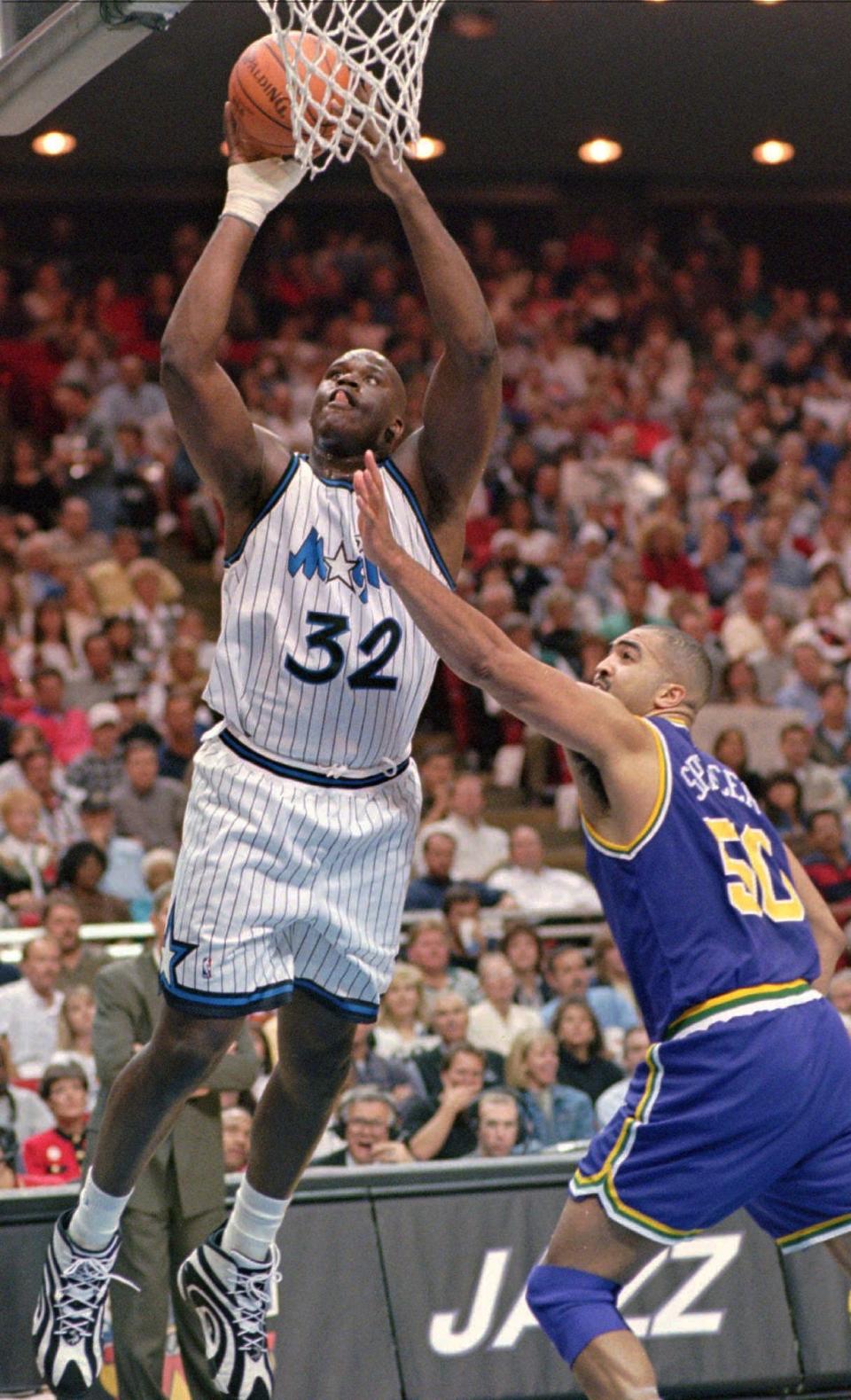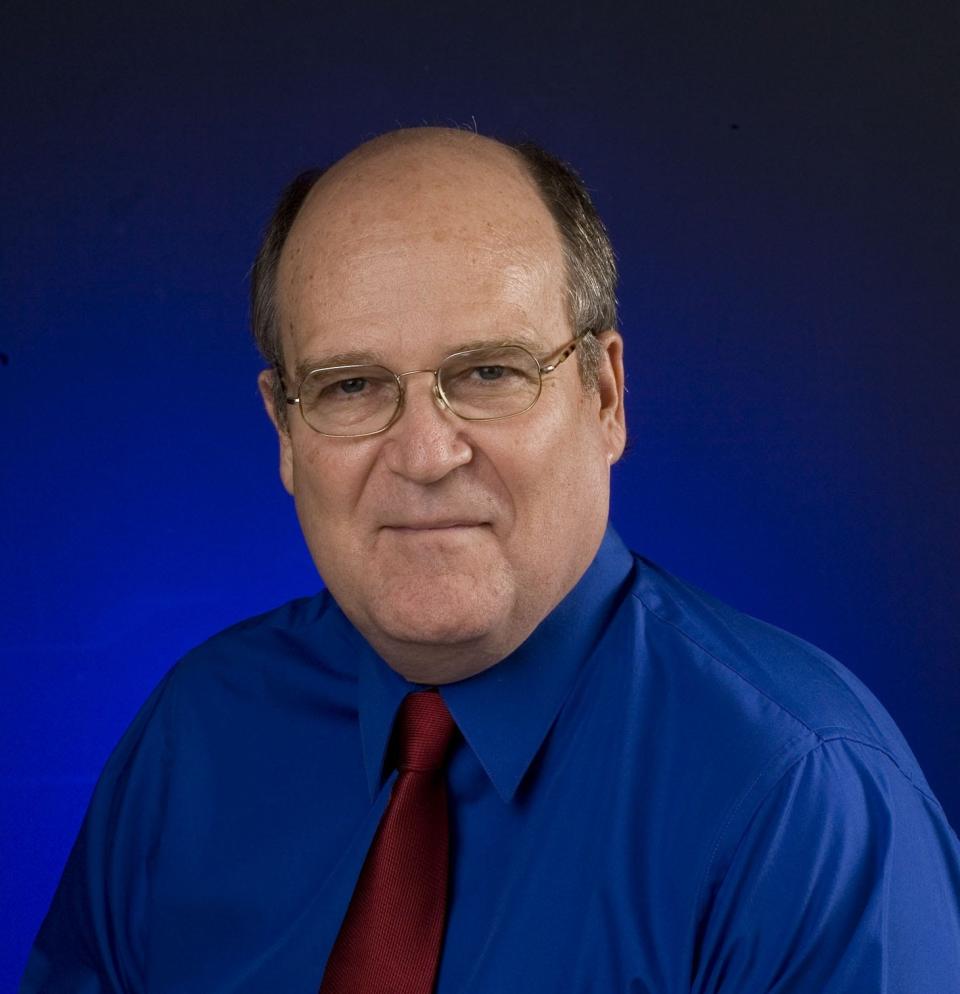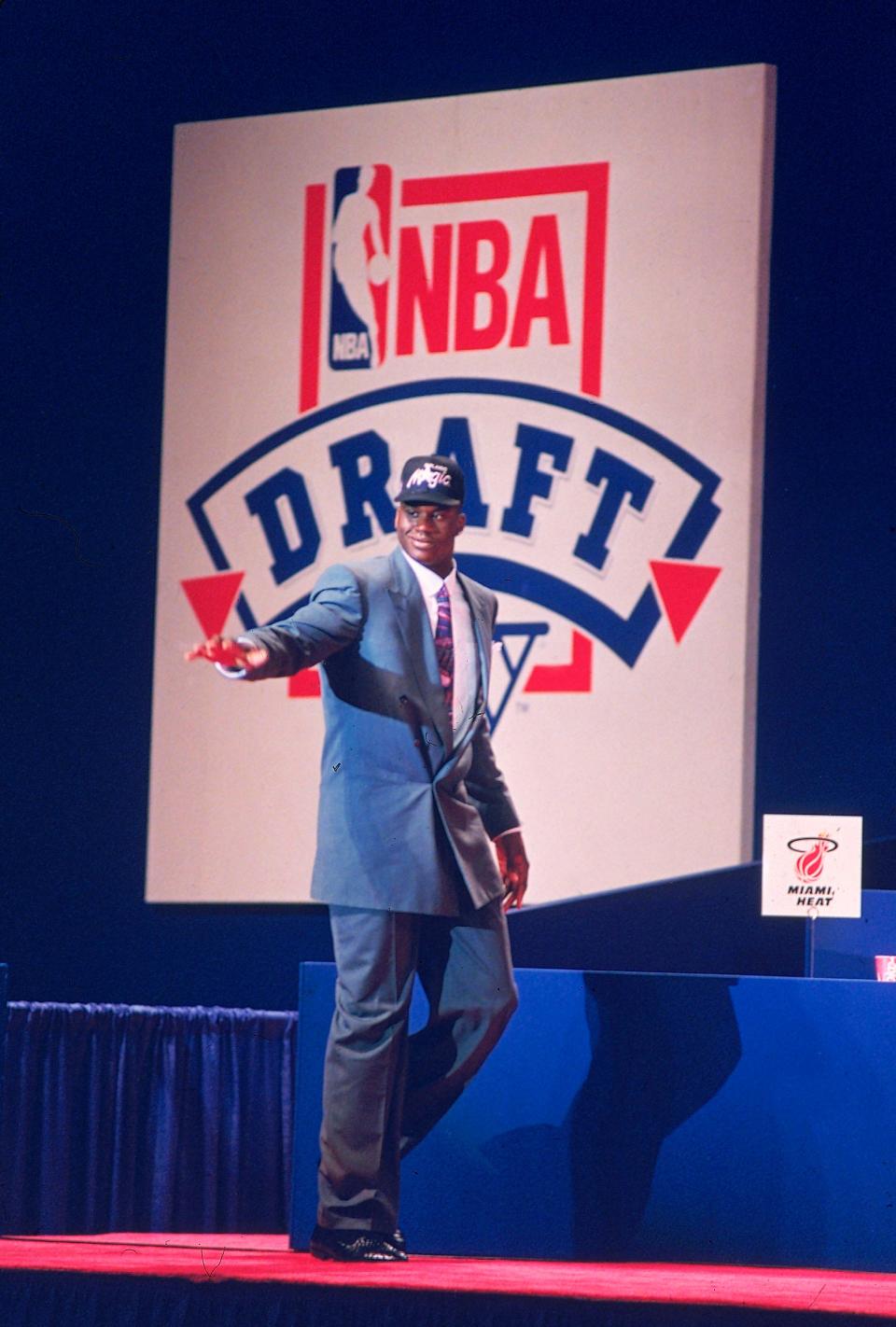Scanlon column: Magic's lottery victory seems different this time

Pop quiz. Three questions:
1. Who won the NBA Lottery last year?
2. Who was drafted with the No. 1 pick?
3. How did it work out?
If you got the first one right, you win. If you got the second one right, without Googling it, then you must be a very serious NBA student, indeed.
The Detroit Pistons won the NBA Lottery last year and drafted Cade Cunningham, a guard out of Oklahoma State, with the top pick. He had a good year, averaging 17.4 points and 5.6 assists, but the Pistons remained near the bottom of the Eastern Conference and were back in the lottery Tuesday night.
The third question is really a trick question. We don't know yet whether Cunningham was worth a No. 1 pick. The answer hasn't been revealed yet.
Scanlon on Kyrie Irving: Irving made a choice and the Nets paid the price
Scanlon on play-in format: BA's play-in format has put a little spark into the playoffs
OK, how about 2020, the year before? The No. 1 pick that year was guard Anthony Edwards, who has been a consistent scorer for two seasons and helped the Minnesota Timberwolves take a step up this year. They made the playoffs.
Whether Edwards will ever make an All-Star team, which would seem to be a reasonable expectation for a No. 1 pick, is questionable.
The year before that it was Zion Williamson, a forward from Duke who came in with sky-high expectations that have not been fulfilled in spite of some big scoring numbers. Injuries have been a problem, to the extent that three years into his pro career, Williamson's conditioning habits are being questioned. When the New Orleans Pelicans finally showed up in the playoffs this spring and won a couple of games against top-seeded Phoenix, it was without Williamson.

So we have had three drafts in a row in which the No. 1 pick, the most coveted selection in the entire draft, produced a player that had little or no immediate impact on the balance of power in the NBA.
And that's one reason why the Orlando Magic winning Tuesday night's NBA Lottery was met with a collective yawn from coast to coast.
It didn't used to be that way, as anyone familiar with the Magic's draft history knows. This is the fourth time the Magic have won the NBA Lottery. The impact of the first three top picks — in 1992, 1993 and 2004 —- was enormous. By contrast, it remains to be seen whether this one will have an impact at all.
The NBA Lottery used to be must-see sports television of great intrigue, at least to the participating teams and their fans. Now it's a quirky little commercial the NBA squeezes in before a playoff game.
What happened? What's changed?
First, the NBA Draft has been devalued. Because of the league's rules on player movement and free agency, it is well established that the draft is not how you build a championship team anymore. Perennial non-playoff teams, like the Magic, continue to cling to the belief that they can collect pieces of a championship team by accumulating draft picks, which is why you see the same teams in the lottery year after year.
When you are drafting 19-year-old players just a year out of high school, you are projecting what that player is going to be four or five years down the road, at which point he might be playing for another team. In the meantime, you continue to lose and you continue to play the lottery.
It used to be assumed that the No. 1 pick would have a major and immediate impact, like a quarterback in the NFL Draft. And the No. 1 pick is what the NBA Lottery is all about.

I remember sitting in an Orlando restaurant 30 years ago, watching Commissioner David Stern conduct the lottery on a big TV screen. Everyone in the Magic organization was there except general manager Pat Williams, who was up in New Jersey, with Stern, at the actual lottery drawing. It was an event, and it would become a celebration when the Magic won. It was as if they had won a championship.
At the top of that draft class was Shaquille O'Neal, Alonzo Mourning and Christian Laettner, three of the most celebrated players in college basketball history. The Magic went into that lottery with the second-best chance to win it so it wasn't shocking when they came out of it with the No. 1 pick, and Shaq, who immediately transformed the Magic from the second-worst team in the NBA to a 41-41 team that missed the playoffs on a tiebreaker.
The shock came the following year, when the Magic won the lottery again. Given their records and the NBA's ping-pong ball lottery formula at the time, the mathematical odds of Orlando winning those lotteries back-to-back were 435 to 1.
It was a bit much. Too much for the rest of the NBA, which reacted by adjusting the formula to reduce the chances of such an outrage ever happening again. The Magic drafted Chris Webber that year but traded him, on draft night, for Penny Hardaway and three future first-round picks, setting up the dynasty that never was. But two years later the Magic lost to Houston in the NBA Finals.
To make a long story short, the Shaq-Penny glory years were followed by another dark age in which the Magic eventually dropped to the bottom of the league. And in 2004 they won the lottery again, this time drafting 18-year-old Dwight Howard.
Back to the Finals with Howard, Rashard Lewis, Hedo Turkoglu and Stan Van Gundy in 2009, and then back down to the bottom of the NBA, where they have resided ever since.
And now the Magic have won the lottery again. Alas, there does not appear to be a Shaq, or a Penny, or a Howard or a Webber in the upcoming draft class. And even if there is, we won't know about it for several years when these 19-year-old kids get into the primes of their careers.
It is difficult to get excited about something that may or may not happen five years from now, which explains why the NBA Lottery is no longer must-see TV.
This article originally appeared on The Ledger: Scanlon column: Magic's lottery victory seems different this time

